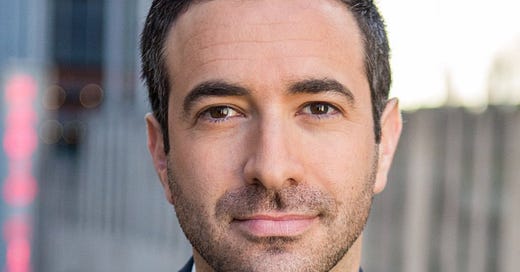The Supreme Court is deciding whether to end Roe v. Wade
Justices seem to backtrack at oral arguments
Hi — Ari here and Happy holidays! It’s been quite a year, (maybe we’ll keep saying that every year…) — so thank you for spending time with me through my newsletter, or watching The Beat, and here’s to a grounded, appreciative, and well-informed 2022!
You can sign up for my entire newsletter here — I’m working on some special stuff for full subscribers:
H…
Keep reading with a 7-day free trial
Subscribe to Ari Melber to keep reading this post and get 7 days of free access to the full post archives.



